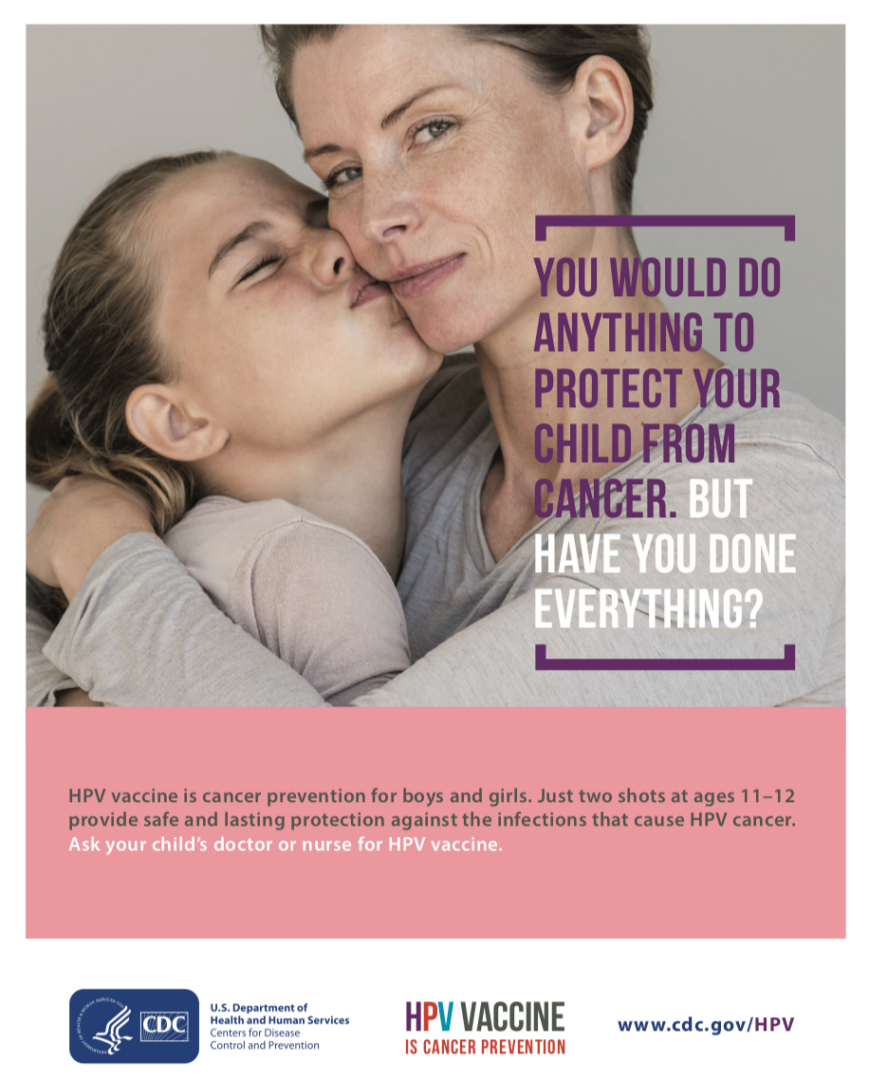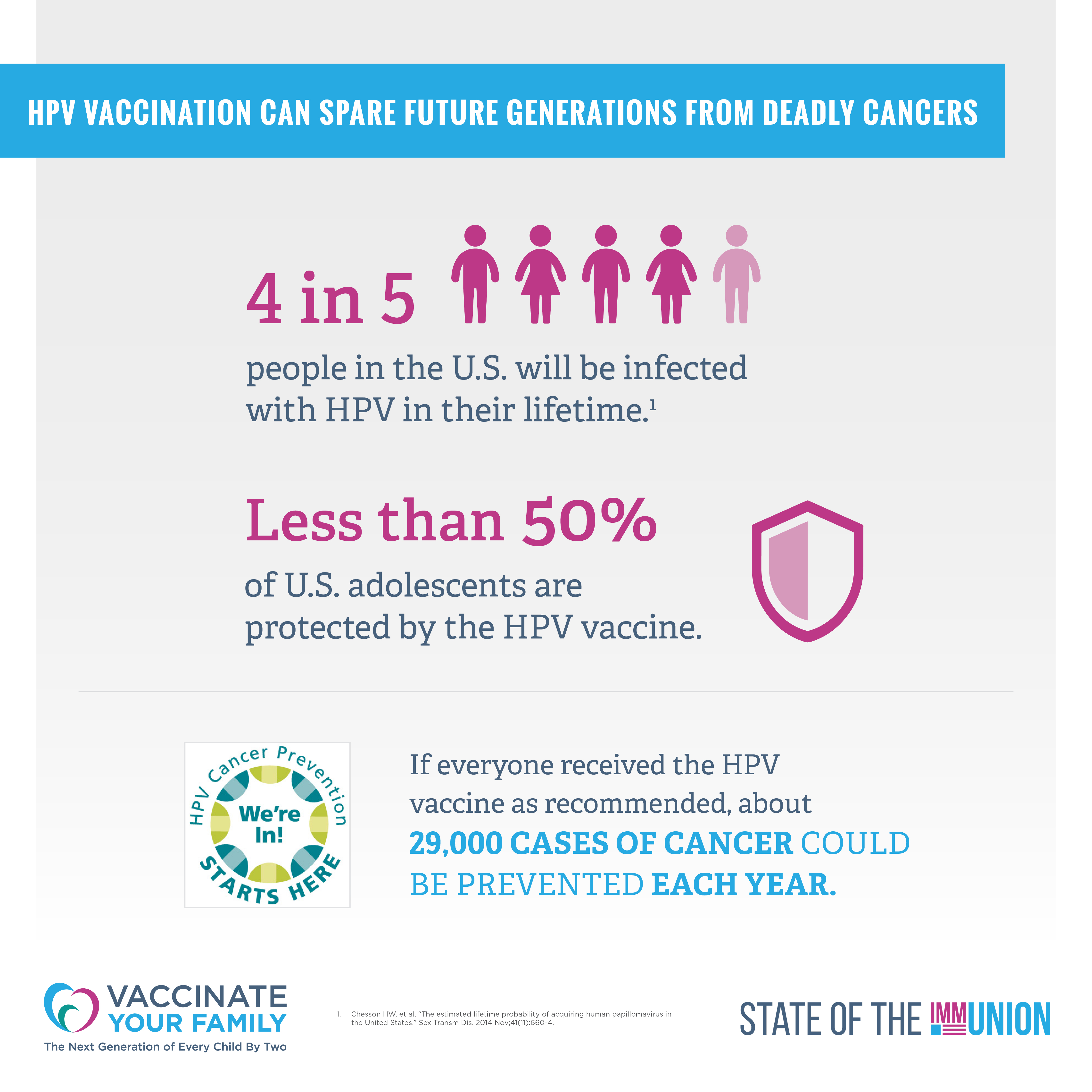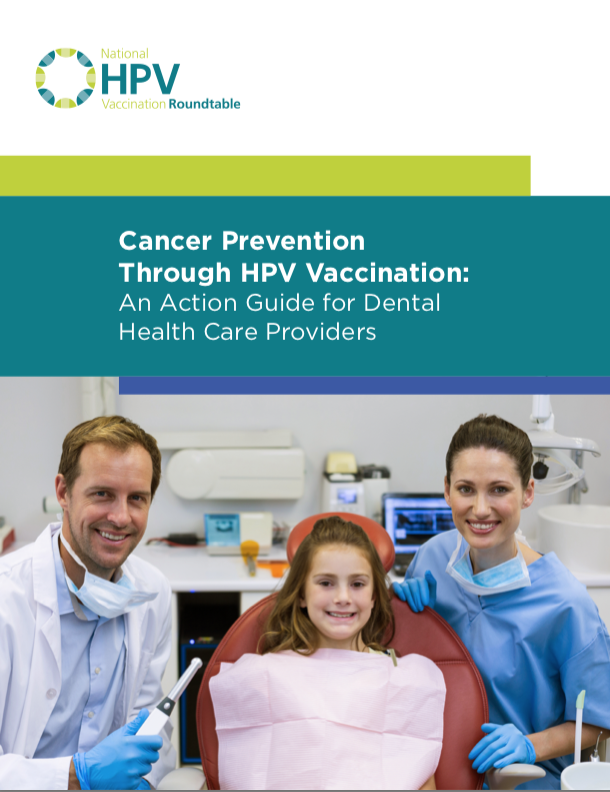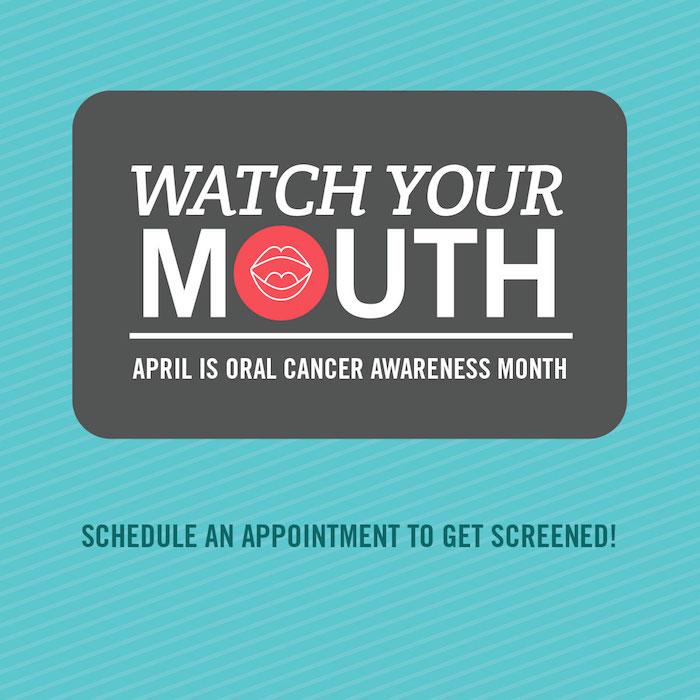What Your Dentist Should Be Telling You About Oral Cancer and HPV
 I had my teeth cleaned yesterday, and while I was at the dentist I remembered that April is Oral Cancer Awareness Month.
I had my teeth cleaned yesterday, and while I was at the dentist I remembered that April is Oral Cancer Awareness Month.
The dentist never mentioned it, but I knew just what she was doing when she put her gloves on and started rolling her fingers around the inside of my checks, under my tongue and on the outside of my neck and jaw. She was doing what all oral health professionals should do – a thorough examination that could help with early detection of oropharyngeal cancers (also known as cancers of the throat and tongue) which are commonly caused by the human papillomavirus (HPV).
As someone who has been diagnosed with two different cancers in the past, I no longer think “not me”. Quite honestly, knowing how prevalent HPV is (it’s estimated that 80% of sexually active people will contract HPV at some point in their life) it’s probably more likely that I would be diagnosed with an HPV related cancer than many other types of cancer. Although most cases of HPV resolve without incident, the fact remains that approximately 14 million new cases of HPV occur in the U.S. each year, with at least 79 million people estimated to be currently infected and about 31,500 cases of HPV related cancers diagnosed in men and women each year in the U.S.. This includes cancers in the oropharynx, cervix, vagina, vulva, penis, and anus.
While HPV can cause up to six different types of cancer, oral cancers are on the rise. It’s estimated that HPV-associated oropharyngeal cancer affects about 16,400 people each year, and that by year 2020, it will become the most common HPV-related cancer in the US, surpassing cervical cancer.
Here are a few other details to consider:
- 70% of all oropharyngeal cancers in the U.S. are caused by HPV
- cancers of the oropharynx are about 4 times more common in men than women
- 1 in 9 American men have oral HPV
- And get this…oral HPV has been detected in newborns when the mother has an HPV cervical infection
While I’m pleased that my dentist took the time to closely examine my neck, throat, mouth and tongue for any abnormalities, I’m disappointed that she didn’t take the opportunity to discuss the importance of HPV vaccination with me.
Education of the public regarding the risk factors which lead to oral cancer, recognition of the early signs and symptoms, and the development of patient awareness, are primary responsibilities of the dental community.
In 2017, the American Academy of Pediatric Dentistry (AAPD) issued a policy statement on HPV vaccination that encourages oral health care providers to educate patients and parents on the relationship of HPV to oral and oropharyngeal cancer and to counsel them regarding the HPV vaccination, in accordance with CDC recommendations. Currently, the CDC recommends two doses of HPV vaccination for girls and boys beginning at ages 11 or 12, but vaccination can be started at age 9 and can be administered through age 26 for females and age 21 for males.
 While oral health professionals should be recommending HPV vaccination to all age-eligible patients, it would be prudent to also provide that information to patients who are parents. Although my dentist is not a pediatric dentist, my five children are also patients and we all get our regularly scheduled dental cleanings twice each year.
While oral health professionals should be recommending HPV vaccination to all age-eligible patients, it would be prudent to also provide that information to patients who are parents. Although my dentist is not a pediatric dentist, my five children are also patients and we all get our regularly scheduled dental cleanings twice each year.
At no point has anyone at this particular dental practice ever discussed oral cancer or HPV with me or any of my children, despite the fact that all five of my children are considered “age-eligible”. (I know this because after my appointment yesterday, I asked my kids.)
Yesterday, my dentist failed to discuss HPV vaccination as a potential way to prevent oral and oropharyngeal cancers, which I consider to be a missed opportunity. However, during our collective twelve appointments each year for the past five years, it’s actually more like 60 enormous missed opportunities!
I get it. Dentists may not be comfortable discussing vaccines. Or HPV. But how comfortable can it be for them to have to tell their patients they may have oral cancer? How comfortable can it be for those patients who will end up having to suffer through an oral cancer that may have been preventable?
Fortunately, there are tests that can help detect HPV in women before they develop cervical cancer. However, the same is not true for HPV-related head and neck cancers. These cancers typically develop in the throat at the base of the tongue, in the folds of the tonsils or the back of the throat, making them very difficult to detect. That is why regular dental exams can be vital. But prevention is always preferred to treatment, and HPV vaccination represents our best chance at prevention.

Since my dentist didn’t provide the information I feel all parents and patients deserve to know, I plan to bring them this action guide for Dental Health Providers, created by the National HPV Vaccination Roundtable when I return next week for my daughter’s visit.

According to the Oral Cancer Foundation, there are over 100,000 dentists in the U.S., each one seeing between 8 and 15 patients per day. If you include those patients who come to a practice and see someone other than the dentist, such as the hygienist, the number of patient visits is significantly higher. If they each did their part to educate their patients, imagine what a huge difference they could make in boosting HPV vaccination rates and reducing oral cancers.
Until we start seeing more dentist taking these types of actions, please help spread the word about the association between HPV and oral cancers, during Oral Cancer Awareness Month and all throughout the year.
Below you will find additional resources regarding HPV vaccination and HPV-related head and neck cancers. Here’s hoping that you never have to deal with an oral cancer diagnosis, like Jason Mendelsohn, Scott Vetter, Frank Summers and others.
https://www.youtube.com/watch?v=18mdnfjUH_M&feature=youtu.be
Other Resources:
National HPV Vaccination Roundtable
Vaccinate Your Family Website: HPV Information
 I had my teeth cleaned yesterday, and while I was at the dentist I remembered that April is
I had my teeth cleaned yesterday, and while I was at the dentist I remembered that April is